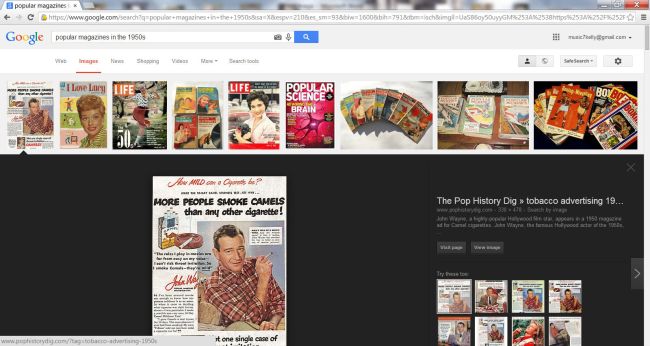Do you like short stories? I love ‘em! Not that I’d want to do away with book-length fiction – not by a long shot! But still, the variety of shorter stories is amazing. And sometimes a shortie is just what you have time for.
It’s hard to believe that for the first 60 or so years of the twentieth century, almost every magazine printed (on paper, not electronic!) – and there were bunches of them! – no matter the theme or subject matter, carried at least one short story. And frequently, more than one. Many of them would have a summer ‘beach-reading’ special, with half a dozen or so short stories in the one issue. Generally speaking, I think I’m safe in saying that these stories were between 2500 and 10,000 words. The best thing is they always had a beginning, a middle and an end. You always knew where you stood with these stories. Unless, of course, they were part of a ‘serial’ and published in chapter format. Many great novels began this way – quite possibly the most famous were the books of Charles Dickens and later, Sir Adrian Conan Doyle’s fabulous creation – Sherlock Holmes.
Believe it or not, nearly every magazine published – even men’s magazines devoted to mechanics or hunting & fishing – included short fiction in their editorial content. Without even really trying, I came up with 39 titles – in all genres – which gave us short fiction. Check out this list, which I know is nowhere near complete.
| Adventure | Graphic Story Magazine | Radio Times |
| Analog Science Fact & Fiction | Jack and Jill | Real |
| Battle Cry | Ladies’ Home Journal | Redbook |
| Better Homes & Gardens | Look | Saturday Evening Post |
| Coronet | Mademoiselle | Seventeen |
| Cosmopolitan (the original!) | Male | Spicy Detective |
| Dynamic Science Stories | Man’s Conquest | Stag |
| Ebony | Man’s Illustrated | The Great Monster Magazines |
| Field & Stream | Man’s Life | True Confessions |
| For Men Only | McCall’s | True Mechanic |
| Fury | Photoplay | Vogue |
| Galaxy Science Fiction | Popular Mechanics | Woman’s Day |
| Good Housekeeping | Popular Romance | Wonder Stories |
While searching for more, I came across this collage, which I found wonderfully fascinating. I hope you like it too! (I think the easiest way for you to find it is: Type ‘popular magazines in the 1950s’ into the Google searchbox, then click on Images.
At any rate, the market for short stories is once again growing rapidly, thanks to the internet. There are probably hundreds of e-zines out there, devoted to every subject known to man – or woman. Or child, for that matter. And, further, I’ll bet that almost all of the great writers of the middle to last years of the previous century started out writing short stories. They’re great for teaching craft – and learning about plot, developing characters, how to ‘show, don’t tell’ and creating the right setting for the story. You can learn about dialogue – and dialect, develop action or leave it static. The possibilities are virtually endless. You can develop your own voice – or several voices! Not to mention different styles, as well.
I didn’t exactly start out to write short stories – I just wanted to write. But over the last almost 40 years, I’ve written a bunch of them in various genres. A good many of them could be categorized as light romance, but they’re mostly too short to be considered seriously as romance. In 2002, I self-published an anthology of 18 stories, ranging from 420 to 18,500 words. A couple of those stories won awards (and a couple more came close, but no cigar!) and several of them were eventually published, some by me and some by a real publisher. Now I’m busily accumulating more short stories to flesh out the remaining stories in that first anthology, to be published later this year at CreateSpace. The title is: Brief Interludes. But don’t worry, I’ll be sure to let you know when that happens! I think I have two more to go! Or maybe three.
One of the greatest benefits to the beginning writer is being able to finish something fairly quickly! A short story generally writes faster than a novel. That’s a major bonus, I think, and I highly recommend it to my students as well as anyone else who wants to write. Another nice bonus is that usually you sell ‘first-time rights’ which is only for that particular publisher. Once the host issue is out there, the rights revert to the author, and it can be sold again. But it would be nice to wait a while before you do that – at least a year. Then try for a different sort of market – not a direct competitor to the first purchaser. That might backfire on the writer, and rightly so, in my mind.
So, good luck with the shorties – and thank you again for reading! The first piece posted at this blog was in April, 2010! Hard to believe so much time has flown by! Thank you to all of you!
As always, if you have comments or questions, please write to me at bookmechanicATgmail.com


The short story lives indeed, never more so than when self-publishing has taken off as it has. Your story can be as short or as long as you like, and it will flow because it is fresh in your mind and you are not daunted by the thought of all those 1000s of words stretching ahead…. Everyone has a novel in them, so it is said, and that may or may not be true, but everyone certainly has a short story in them. Go for It!
I love short stories!